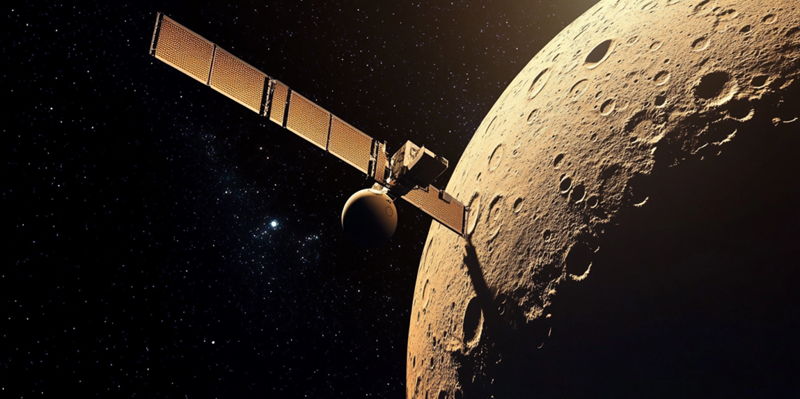In a groundbreaking development that signifies a major advancement in space-based data storage, Sidus Space has been chosen by Lonestar to design and construct a sophisticated fleet of Data Storage Spacecraft. Under the terms of the agreement, Sidus will build six state-of-the-art lunar orbit satellites, making them Lonestar’s exclusive satellite manufacturing partner. These cutting-edge satellites are tasked with advanced data storage and disaster recovery functions, addressing critical needs in data management for various high-priority applications.
Significant Step in Space-Based Data Storage
Development of Six Lunar Orbit Satellites
Sidus Space will spearhead the development of six lunar orbit satellites engineered to meet stringent security and redundancy requirements. The engineering marvel lies not just in the satellites’ ability to store data but in their resilience to withstand the harsh conditions of space. The focus on disaster recovery underscores the necessity for a dependable storage solution in today’s highly digital world. Sidus will undertake the entire spectrum of satellite production, which includes intricate design details, payload integration, and seamless in-orbit support. This makes Sidus a comprehensive partner in realizing Lonestar’s vision for secure data management from the expansive environs of space.
Carol Craig, CEO of Sidus, emphasized that their LizzieSat platform offers unparalleled flexibility, making it highly adaptable for diverse operational needs of various customers. This adaptability is vital, given the unique demands of space-based data storage. The ability to scale and modify the LizzieSat platform demonstrates Sidus’ commitment to developing resilient and cost-efficient solutions. By choosing Sidus, Lonestar is ensuring that its satellites will not only store data securely but will also provide robust disaster recovery functionalities, offering peace of mind in the event of unexpected data disruptions.
Addressing High-Priority Data Management Needs
The primary goal of the lunar orbit satellites is to address high-priority data management needs, emphasizing secure and resilient solutions. In an age where data is the cornerstone of almost every operation, ensuring its safety and accessibility is crucial. Sidus’ capability to integrate advanced security measures into the design of these satellites is an impressive feat. Their experience in managing mission-critical satellite operations further assures that these satellites will meet all necessary requirements for secure space-based data storage. Inclusive of strategic planning, these operations emphasize the synchronization of all satellite functionalities to deliver optimum performance.
Sidus Space’s extensive experience in payload integration plays a crucial role in this initiative. The complexity of integrating multiple systems into one cohesive unit cannot be understated, especially given the rigorous operational standards set by Lonestar. Each satellite will be meticulously designed and launched to ensure reliability in harsh lunar conditions. Furthermore, in-orbit support will provide essential maintenance and operational oversight, ensuring the continuous functionality of the satellites. Sidus’ commitment to excellence in satellite production and integration evidently positions them as a leader in the evolving domain of space-based data storage solutions.
Strategic Alignment and Expertise
Vision for Premium Data Storage and RAAS
Chris Stott, Founder and CEO of Lonestar, expressed that the collaboration with Sidus aligns perfectly with Lonestar’s mission to provide premium data storage and Resiliency As A Service (RAAS). Stott’s confidence in Sidus stems from their proven expertise in AI-driven satellite operations and their ability to execute mission-critical tasks with precision. This partnership signifies more than just a business arrangement; it’s a stride towards adopting cutting-edge technology to ensure data security. Such collaboration is set to revolutionize the way data is managed and stored beyond Earth, indicating a leap towards new horizons in digital security measures.
The emphasis on RAAS from space highlights the forward-thinking approach of Lonestar. As data becomes increasingly central to operational efficiency and strategic planning, having a reliable backup in space addresses potential data vulnerabilities that could adversely impact businesses. By leveraging space as a frontier for data storage, Lonestar aims to offer unmatched resiliency and reliability. This strategic move not only serves immediate needs but also sets a precedent for future advancements in data storage technologies. Being at the forefront of such a transformative approach reiterates Lonestar’s role as an innovator in the field.
Expansion and Growth in Florida
In a significant breakthrough for space-based data storage, Sidus Space has been selected by Lonestar to design and build an advanced fleet of Data Storage Spacecraft. This partnership will see Sidus Space constructing six cutting-edge lunar orbit satellites, securing their position as Lonestar’s sole satellite manufacturing partner. These state-of-the-art satellites will be equipped with advanced data storage capabilities and disaster recovery functions, addressing essential needs in data management. The collaboration between Sidus Space and Lonestar symbolizes a crucial step forward in managing and safeguarding critical data from space, highlighting the increasing importance of robust data storage solutions for high-priority applications. These applications encompass a wide range of sectors, including government, business, and scientific research, illustrating the broad impact and vital nature of this endeavor. The satellites’ cutting-edge technology aims to redefine how data is stored and protected, offering resilience against potential terrestrial disasters and ensuring continuous data accessibility.

